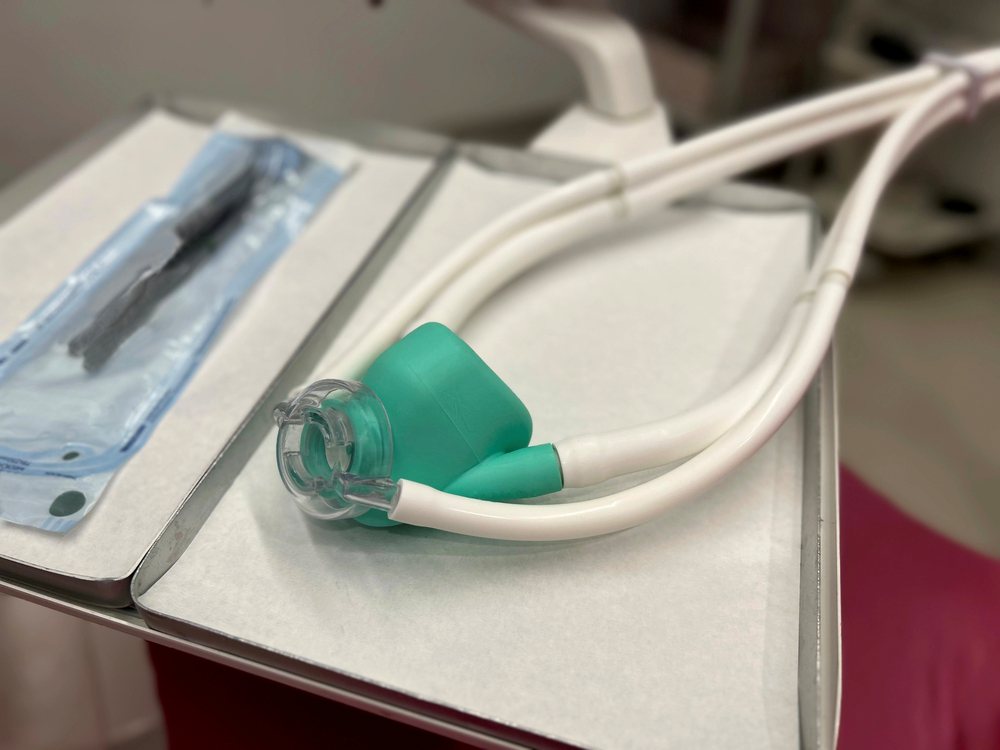When you’re working on the tools day in and day out, physical discomfort is just part of the job. But when it comes to the dentist’s chair, many tradies quietly admit they’d rather deal with a busted knuckle than face the drill. Dental anxiety isn’t rare, and it’s not weakness either. That fear is real, and for many, it gets in the way of getting urgent dental work done.
Conscious sedation offers a way forward. It’s a practical, medically backed method that helps patients stay calm and get treated with less stress, especially in high-pressure emergency situations.
Unlike the general anaesthetic often used in surgeries, conscious sedation keeps you awake but relaxed. You’re still able to respond if needed, but you’re calm and detached from the stress of the moment.
For many working-class men across Te Awamutu and the Waikato, this has become a trusted way to handle the kind of dental work they’ve been putting off for years. And with more clinics offering this approach, it’s becoming part of the new norm in dental care.
Key Takeaways
- Conscious sedation keeps patients calm and aware but comfortable during procedures
- It is widely used and considered safe for most healthy adults in New Zealand
- Reduces anxiety, improves dentist efficiency, and leads to quicker recovery times
- More men are requesting sedation as dental stigma continues to decline
- Ideal for emergency dental work or longer, complex procedures
What Is Conscious Sedation and Why It’s Not “Being Put Under”
Sedation Explained in Plain Terms
Conscious sedation involves using medication to help you relax while staying awake during dental treatment. You’re not knocked out. You remain responsive but far more comfortable than you’d be otherwise. It’s different from general anaesthetic, which puts you fully to sleep and requires hospital-level monitoring. With conscious sedation, you’re in a safe, controlled environment where the focus is on easing your nerves and minimising discomfort. It’s often used for longer or more intense procedures that might otherwise cause distress or panic.
Methods Used in Dental Sedation
The three main types of conscious sedation are oral sedatives, intravenous (IV) sedation, and inhalation sedation using nitrous oxide (laughing gas). Each method has different strengths. Oral sedatives are taken in pill form and usually kick in slowly. IV sedation works faster and allows the dentist to control the level of sedation more precisely. Nitrous oxide is mild but effective, and wears off quickly. Your dentist will recommend the most appropriate one based on your health, treatment plan, and comfort level. Clinics in the Te Awamutu area often use a mix of these options depending on the complexity of the case, ensuring each patient receives individual care.
Common Tradie Fears and How Sedation Helps
The Anxiety Behind the Drill
Dental fear doesn’t always come from the tools. It’s often the anticipation of pain, the sound of equipment, or feeling out of control in the chair. For many tradies, it’s linked to bad experiences in the past: Times when the pain wasn’t managed well or they felt rushed through an appointment. That anxiety can become a barrier to regular dental care or even emergency treatment. And it’s not uncommon to hear stories from blokes who’ve delayed care for years, even when the pain was affecting their work and sleep.
How Sedation Makes a Difference
Conscious sedation takes the edge off. You won’t be completely unaware, but you’ll likely have little memory of the procedure afterward. Your muscles stay relaxed, your breathing remains steady, and the dentist can work more efficiently without you tensing up or flinching. This doesn’t just make the experience easier for you. It also improves the accuracy and speed of the procedure. For someone used to staying in control on-site, this kind of mental relief can be a game-changer, reducing not just pain but the emotional load that comes with dental visits.
Is Sedation Safe for Working-Class Blokes?
Who It’s For (and Not For)
Conscious sedation is widely used across New Zealand and is considered safe for most healthy adults. That said, it’s not a one-size-fits-all approach. Dentists always run through your medical history before approving sedation. If you have certain heart conditions, respiratory issues, or you’re on specific medications, they may adjust the plan or suggest an alternative. The key is transparency. Talk openly with your dentist about your history, medications, and past experiences so they can tailor the safest approach for your needs.
What Recovery Looks Like
Most people feel drowsy for a few hours after sedation, so you’ll need someone to drive you home. You might feel a bit foggy, but that usually clears up by the next day. Unlike general anaesthetic, recovery is much quicker. Many tradies are able to get back to light duties within a day or two, depending on the procedure. Some even return to site sooner, especially if the sedation was mild and the dental work straightforward. Drinking water, resting well, and avoiding operating machinery immediately after are standard precautions.
Why Local Clinics Are Seeing More Sedation Requests
From Te Awamutu to Kihikihi, More Men Are Saying Yes
Across the Waikato, dental clinics are seeing a shift. More working men are asking about sedation options and booking in sooner for procedures they once avoided. The stigma around anxiety is easing, and there’s growing recognition that staying on top of your health includes managing your mental and emotional response to care. With more education and open conversation, men who used to avoid dental visits entirely are now booking in before things get worse.
What to Ask Your Dentist
Before you agree to sedation, ask a few key questions. What type will be used? How long will it last? What are the side effects? Understanding the process helps take the mystery out of it. It also gives you a chance to weigh your options and feel more confident about moving forward. Ask about the cost, too. Many clinics offer flexible payment plans or ACC-supported emergency care for qualifying injuries. Being informed reduces stress and increases the likelihood you’ll follow through.
Real Talk: When Sedation Makes the Most Sense
For Emergency Dental Work
Dental emergencies like cracked teeth, abscesses, or severe infections can bring intense pain. Waiting too long only makes things worse. If fear is the reason you’re holding off, conscious sedation can help you get treated faster and with less trauma.
Emergency rooms and after-hours clinics are seeing more requests for sedation because patients are realising they don’t have to choose between panic and pain. The option exists and it works.
If you’ve ever put off getting broken dentures fixed because of stress or fear, this quick repair guide for tradies breaks down what to expect and how conscious sedation can make the process easier.
For Longer Treatments
Multiple extractions, complex root canals, or full-mouth restorations can take time. Sedation helps manage that process. You’ll stay relaxed while the dentist does what’s needed, and you’ll likely remember very little of it later. That means less dread before future visits. For large treatment plans that span several appointments, sedation can also be used to consolidate multiple procedures into fewer sessions, saving you time off work and reducing total recovery periods.
It’s Not Weak to Want Relief, It’s Smart
There’s nothing soft about taking care of your health. Conscious sedation isn’t about avoiding pain. It’s about getting through necessary treatment without unnecessary stress. More tradies across the Waikato are choosing sedation so they can get sorted and get back to work without dragging their heels for weeks.
The truth is, toughing it out isn’t always the answer. The longer you delay, the worse the problem gets, and the harder it becomes to treat. Conscious sedation gives you the breathing room to get it sorted without the mental grind. If you’ve been putting off dental care due to fear, talk to a local dentist who offers conscious sedation. It’s a practical, proven option that could save your teeth, your time, and your peace of mind.
You’re not alone. Plenty of blokes have walked through that same clinic door, said the same thing: “I should’ve done this earlier.”


